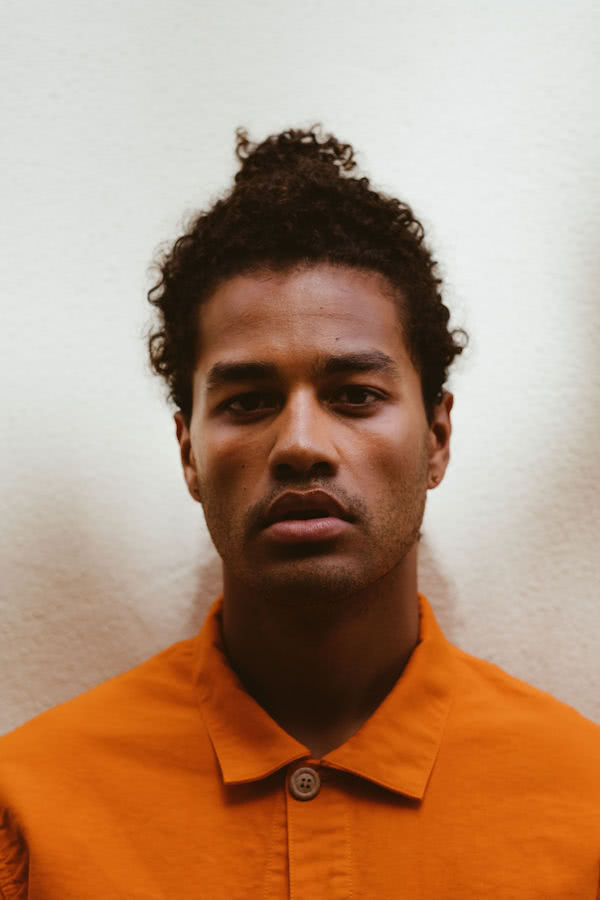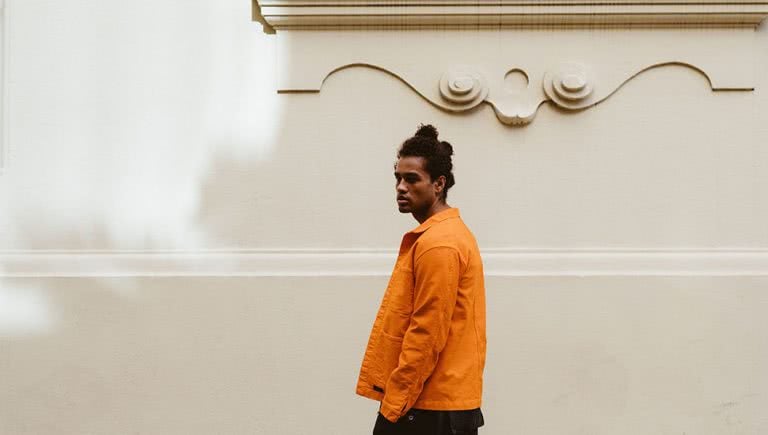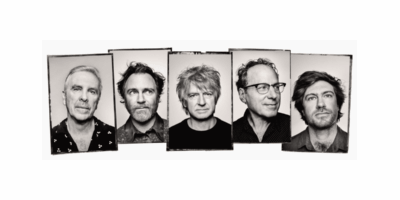On June 5th, Ziggy Ramo released his debut album, Black Thoughts, which he had penned half a decade prior whilst hospitalised in Perth on suicide watch.
“I wrote this album five years ago while I was hospitalised,” Ramo, who hails from Arnhem Land, shared upon the album’s release. “I was in a dark space and on suicide watch. It was my obituary. I wanted to document my thoughts so that our stories could be heard after I was gone.”
Ramo decided against releasing the record as he felt that we, as a country, “weren’t ready to listen.”
On May 25th, unarmed black man George Floyd was murdered whilst in the custody of four Minneapolis police officers. The death of the 46-year-old sparked global protests calling for an end to police brutality.
When the Black Lives Matter protests started to unfurl across Australian shores, it held a mirror to the police brutality that permeates on our home soil. We were forced to reckon with the systemic racism experienced by First Nations people in their own country.
Amid the unrest, Ramo decided it was imperative that Black Thoughts finally be heard, “A lot of you have been asking what you can do to support change during this time. You can start by listening.”
We spoke to Ziggy Ramo about his crucial, uncompromising debut record, Black Thoughts.
When you released Black Thoughts, you released a statement that said “I never put it out because I knew, as a country, we weren’t ready to listen? Do you think that Australia is now ready to listen?
“I realised that’s completely out of my control, in a perfect world this album could be number one on the ARIA charts with everyone getting around it. When May 25th happened and the world stopped with the murder of George Floyd, I realised I had to leave my pride and ego at the door.
“As an artist, I have my own individual ambitions of wanting to be successful, but my purpose has always been about advocating for our community and bringing awareness to what’s going on.
“I did write this five years ago and I showed a bunch of different label execs and the feedback I was getting from the industry was not very supportive. I felt like it was going to fall on deaf ears.
“With what happened [the murder of George Floyd] I thought, It’s not about me. The quicker I can get this out, the longer people have time to stick with it and listen and use it as a learning resource.
“For me, as much as Black Thoughts is an album, it’s not something to just casually throw on. I want to stress that this album isn’t the answer. It’s just questions, and it’s asking questions.
“I didn’t want to wait anymore. It had to be out. Whether or not people find it today, or in a week, or in a year. The quicker it’s out, the longer people have time to process and reflect on themselves.”
Do you see your music as didactic, and a vessel for change?
“100 per cent. To me, art in it’s truest form is expression — that’s what this album is for me. I have all these intents but I can’t control how people react to it. It was created with that intention.
“When I wrote this I was in university, I was writing essays around this. I have access to this knowledge but I know a lot of people don’t.
“Since I was fifteen I knew all I wanted to do was music but I felt that was a very selfish use of my time. My purpose was advocating for our people and our community in raising awareness and educating people around our true history.
“When I realised I could combine my individual passion for music and my greater purpose in life that’s when I had a lightbulb moment.
“I always say if the music isn’t good you’re in the wrong medium. First and foremost the music has to be good. I also want it to be more than that, I want it to be a catalyst for change, I want it to be a spark. For me, growing up, that’s what music always was. I would go and do research on the albums.
“People learn in many different avenues. I feel like our story hasn’t so much been told. There are many amazing indigenous artists. The more learning opportunity through music and the different voices bring more opportunity for people to connect with it.”
You brought up this point in ‘White Lies’, in which Australia is so ready to embrace Kendrick Lamar but there’s a cognitive dissonance between embracing Kendrick and ignoring what’s happening on Australian soil.
As a nation we will accept international artists that don’t fit the mould, we don’t demand the international artists are white or keep it apolitical but internally it’s a different story.
Why do you think as a country we’re so willing to ignore the hip hop artists that illuminate their experience living in Australia?
“I think it’s twofold. I think firstly, our lack of understanding of our own history. It’s really uncomfortable to be a twenty-something-year-old adult and listen to a song about your history and not really know what the person is talking about. There is wilful ignorance.
“Our whole national identity is the Aussie larrikin who laughs things off. We’re laughing at things because we’re uncomfortable. We’re covering up the fact that we don’t know.
“If you look at what’s happened in America. We as a country were so ready to point our finger and what was going on with police brutality and at the same time, we have had 437 known indigenous deaths in custody since The Royal Commission.
“We aren’t good at dealing with what’s going on in our own backyard. To elevate our artists we have to have an understanding of what’s going on here.”
We’re laughing at things because we’re uncomfortable.
“What I’m talking about in ‘White Lies’ is that it’s contradictory. How can we be so supportive of Kendrick Lamar when people here talking about the same thing aren’t raised to that platform.
“We need to keep that same energy. By no means am I comparing Black Thoughts to To Pimp a Butterfly but the amount of deep-dive journalism that was done around the themes of what Kendrick was talking about. I’m going to be pretty interested to see if people go that deep in Black Thoughts. Do we keep that same energy?
“It’s easy to prop up Kendrick and what he’s talking about because it doesn’t hold any weight to our lives. It doesn’t affect us. it doesn’t mean we have to change anything. If we actually unpack what I’m talking about, then we actually have to start holding ourselves accountable.”
The albums closing track, ‘Final Thoughts’, is an eighteen-minute odyssey that tracks a conversation between Ziggy Ramo and journalist and documentary maker Daniel Browning. A track that sees the pair delve into Blackbirding.
Days before I interviewed Ramo, Prime Minister Scott Morrison took part in a radio interview, discussing the removal of colonial statues like Captain James Cook. During the interview, Morrison claimed that “there was no slavery in Australia.”
“While slave ships continued to travel around the world when Australia was established, sure it was a pretty brutal settlement … but there was no slavery in Australia.”
Between 1863 and 1904, 62,000 boy and men were sent from Vanuatu, the Solomon Islands, Papua New Guinea, Tuvalu, Kiribati and Fiji to work on sugarcane plantations in Queensland and indentured labourers — slaves. Many of those never returned home.
Listen to ‘Final Thoughts’ by Ziggy Ramo:

‘Final Thoughts’ features an interview between you and journalist Daniel Browning, where you delve into the history of Blackbirding. Why did you decide to bring that part of history to the forefront?
“I made the decision to put the album out before Scott made those comments. For me, it’s my families history. When Scott comes out and says “Australia doesn’t have slavery?” I don’t know what to say to that.
“My father’s ancestry is indigenous and Solomon Islander. My Solomon Island ancestors got brought here on ships to cut down sugar canes as slaves, against their will.
“What I’m really interested in is why? Why does he want to believe that we don’t have a history of slavery? I think it’s because for the last 230 years we’ve done a really good job at not acknowledging what has happened.
“Our country is worth over ten trillion dollars. Where has all that money come from? When John Howard was Prime Minister he had twenty years of uninterrupted economic growth. And he was the same Prime Minister that didn’t acknowledge and didn’t believe in Indigenous genocide.”
Check out ‘Black Thoughts’ by Ziggy Ramo:

[In 1997, the ‘Bringing Them Home’ report was conducted. An inquiry into the Separation of Aboriginal and Torres Strait Islander Children from Their Families.
A recommendation brought forward by the report was that reparation be brought to Indigenous people affected by forced removal policies. Those reparations included an acknowledgement and apology from Australian parliament and agencies that implemented the forcible removal policy.
In 1999, The Howard Government refused a full apology.
In the years since his 11-year tenure, the former Prime Minister has defended his decision to not apologise to Indigenous Australians. He also denied that the First Nations people of Australia had faced genocide.
Howard refused to accept the findings of the ‘Bringing Them Home’ report, telling Seven’s Sunday Night’ program: “I didn’t accept the conclusion of the Bringing Them Home report that genocide had been practised against the Indigenous people.”
“I didn’t believe genocide had taken place, and I still don’t.”
“When you’ve had politicians that have tried to bring awareness to this —like Gough Whitlam or Paul Keating— the system has spat them out. Gough was kicked out. Paul Keating lost support. That’s why for me, we weren’t ready to hear this album. We are so far from understanding what’s gone on in this country. How can we not know that our country is founded on slavery?
“We’re ready and waiting to have a conversation about strategies and reforms but you can’t talk about moving forward if you don’t know where we’ve come from.
If you don’t understand why change is important to you, you’re not going to be self-motivated.
“This album to me is higher reading. It’s getting you ready to sit down and talk about things. The truth is, if we don’t have an understanding, we can’t understand why change is important to us.
“It’s so important that we as individuals ask ourselves why we care about creating change. If you don’t understand why change is important to you, you’re not going to be self-motivated. You have no stake in following through. You can just go back to your normal life. It doesn’t impact you in that immediate sense. For us it does.
“In regards to Blackbirding, of course, you want to believe that your country doesn’t have a history of slavery. The fact is, you look at the concentration of South East Islander communities in Queensland. You look at the fact that 95% of the sugar exported from Australia is grown in Queensland. You look at the 2 billion dollar annual industry — the second-largest export behind wheat. It’s one thread that all unravels.
“Throughout our history, we have so-called protection policies. You look at The Aborigines Act 1905. Where A. O. Neville was made the legal guardian of all Indigenous kids under the age of sixteen. Kids who were forcibly removed from their families.
We have been slaves in our own home.
“Those kids were put in missions and then used as Indentured labour. Which is just a nice way to say slavery under the guise of Government protection policies.
“We have been slaves in our own home. If you look at Indigenous people forced off their land, where the only way they could stay was to work either on cattle yards or sheep stations as Indentured labour. Our history is riddled with it.
“The truth is, we have never asked why. With this album, my hope is that it motivates people to ask why? Your privilege in this country has come at a cost. We’re still paying the price for that as Indigenous Australians. We’ve never dealt with the root of the issue.
“If we want to deal with what’s going on, we have to go all the way back. It’s hard because we’ve gone on for 230 years. Just because it’s hard, it doesn’t mean it’s not what we have to do.”

What is it that you hope people take from Black Thoughts?
“I don’t ever want to tell people what to think. That’s not learning, that’s just following. If you only learn by listening to my voice, you’re not really learning. You’re not really digesting the issues. With this album, I’m hoping to inspire learning. I’m hoping it’s that spark for people to ask why? To hold the mirror up. To make time for self-reflection.
“‘Final Thoughts’ ends with silence. For me, that’s positive and negative. Your silence could mean violence or your silence could be a moment of reflection.
“Until you realise why change is important to you, you’re not going to be in it for the long haul. This album is holding us accountable. It’s acting as a learning resource.
“I empathise with the fact your government hasn’t taught you what it’s done because it’s ashamed and it doesn’t want to own up to it. You going through your life and having no understanding of it is your privilege but it is also not a mistake, it’s conditioning. They [the Government] don’t want you to know what’s gone on.
“The intention with the album is trying to be that spark. It’s the start of these conversations. It’s hoping you taking things from this album means you have conversation points to refer to, to bring up.
“It’s hoping that it inspired you, as an individual, on your journey.”

































